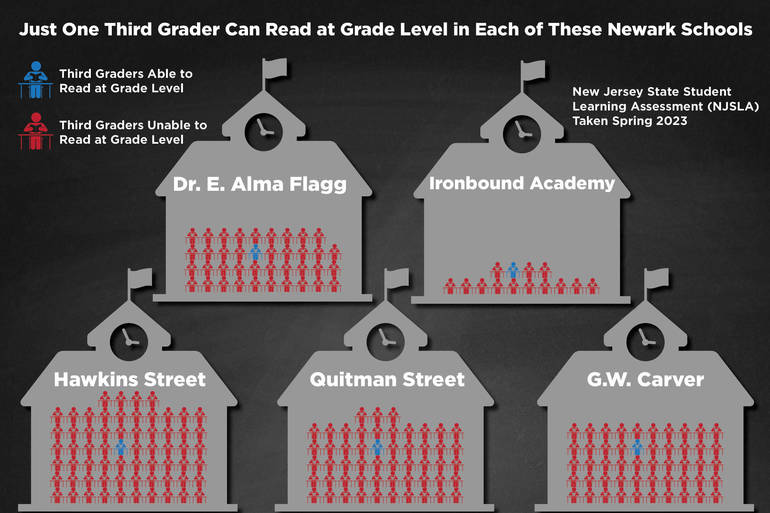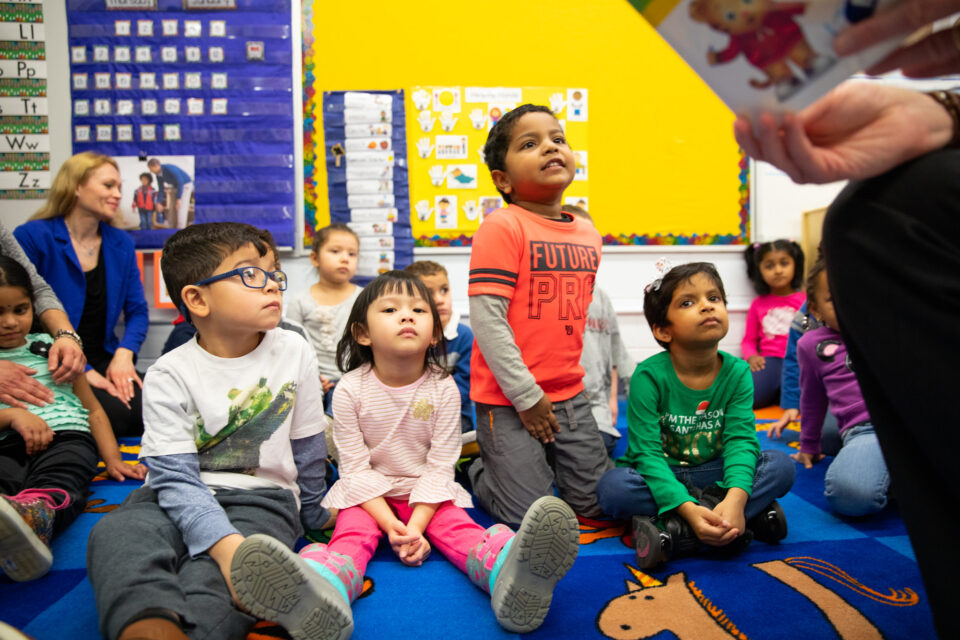
BREAKING: Here Is Your New Education Commissioner
January 29, 2024
Murphy Confirms Nomination of Kevin Dehmer As Next Commissioner
January 29, 2024Mayhem Is the One Consistency In Newark. Here Is the Latest.
“There are so many people here talking about a book that’s been banned. You guys are banning books, but you’re not worried about our children not being able to read a book. I think that’s crazy.”
That’s Sol Salazar, a parent in Newark, commenting at last Thursday’s school board meeting after news that Newark Superintendent Roger Leon decided to eliminate a book on sixth-grade reading lists, “A Little Piece of Ground” by Elizabeth Laird, that describes the experiences of a 12-year-old boy who lives in Gaza. When the School Board approved it last year, multiple Jewish organizations complained that the book is “propaganda that dehumanizes Israelis and paints a distorted picture of the Israeli-Palestinian conflict.” (New Jersey has the second highest incidences of anti-Semitic violence in the country, just after New York.)
There are two issues here, one raised by the Newark Board of Education and the other raised by Salazar.
Superintendents don’t approve reading lists. Typically they are developed through a curricular review process than includes teachers, administrators, and school board members. Certainly, superintendents don’t ban books. According to Newark board vice president Dawn Hayes, “We do not agree with book banning at all — specifically one that talks about a community of oppressed people that was written 20 years ago.”
Why did Leon unilaterally ban a book when the elected body he reports to opposes book bans?
That’s unclear.
Salazar’s question about a misplaced focus is fair, especially in a district where in five elementary schools only one third-grader is reading at grade-level and across all district schools 81% of third-graders fail the state standardized test in reading. “The third grade reading scores in Newark are sounding the alarm that this is a crisis,” said Vivian Cox Fraser, the president & CEO of the Urban League of Essex County
TAPinto notes that last week’s meeting was a “heated meeting” for the two new school board members, Kanileah Anderson and Helena Vinhas, who were sworn in to fill two seats opened by resignations. They will serve until April when Newark has its school board elections. Back in October the board had unanimously chosen Thomas Luna but declined to swear him in because he’s a long-time public charter school teacher. This is the first time the board has claimed charter school teachers can’t be on the district school board; previously, several members have taught in the city’s large charter sector. The state School Ethics Commission, according to a legal memo, says Luna has no conflict of interest.
Speaking of conflict of interest, Newark School Board President Hasani Council’s father Patrick, who is a also a city councilman, is an employee of the district, a “youth opportunity coordinator” making $80,751 a year. Hasani is his father’s chief of staff, making $85,000 a year. Every school board member is required every year to fill out a financial disclosure form. From 2020-2022 Hasani Council claimed he had no relatives working in the district.
From today’s nj.com:
“The director of the Institute for Ethical Leadership at Rutgers Business School had a slightly dimmer view of the Councils’ overlapping roles in the district.”
“I think it fair to say that this gives the appearance of a conflict of interest,” said the institute’s director, Prof. Joanne B. Ciulla. “It’s not unethical per se, but it doesn’t look good and can potentially be unethical. One could imagine situations where it would be a conflict of interest. For example, if the son made decisions that directly affected an aspect of his father’s job or employment or if the father used his son’s position to have leverage over his boss.”
In a related matter that goes to the lack of transparency in the district, last week a Superior Court judge ordered that she have access to a copy of a report on racism at the Newark School of Global Studies. The district claimed the “sensitive nature of the subject” allowed it to withhold the report from the public, despite repeated demands from school board members,, parents, and advocates.





